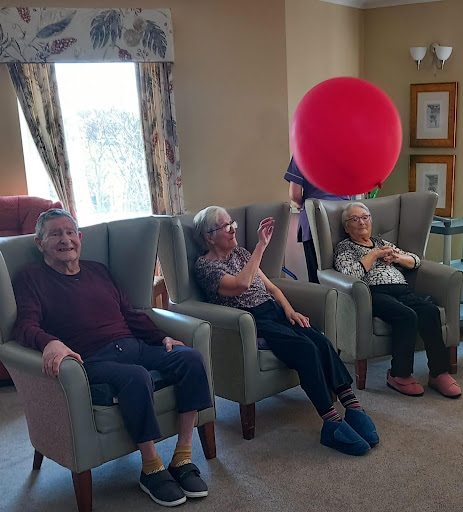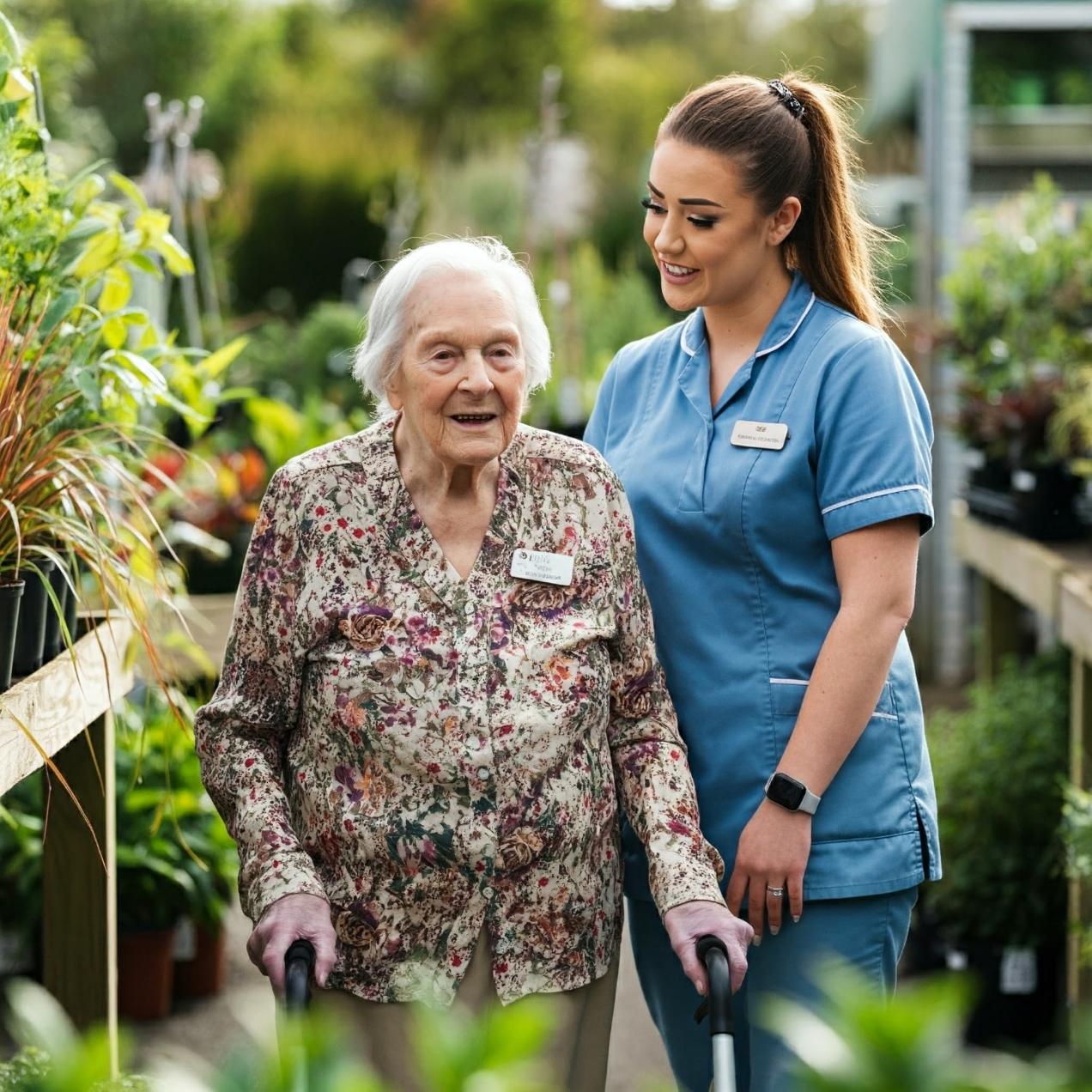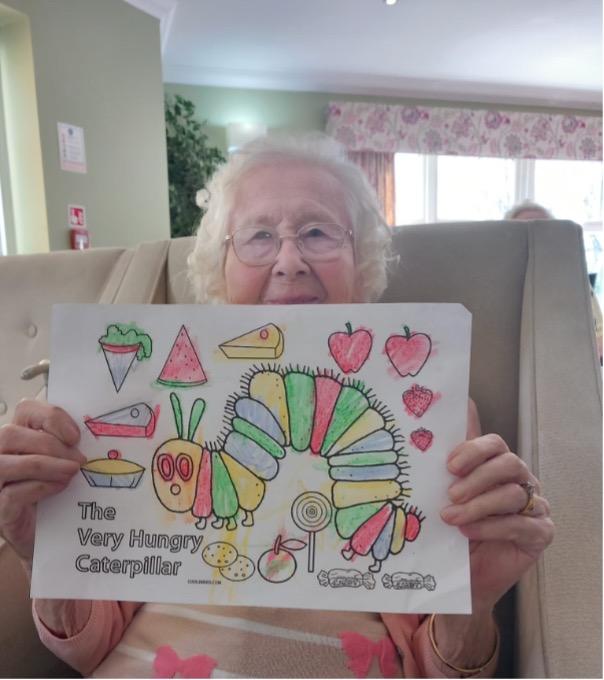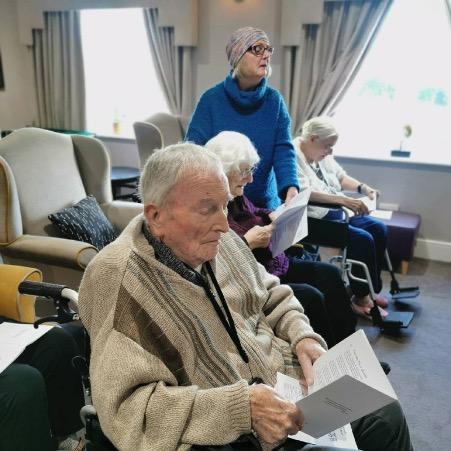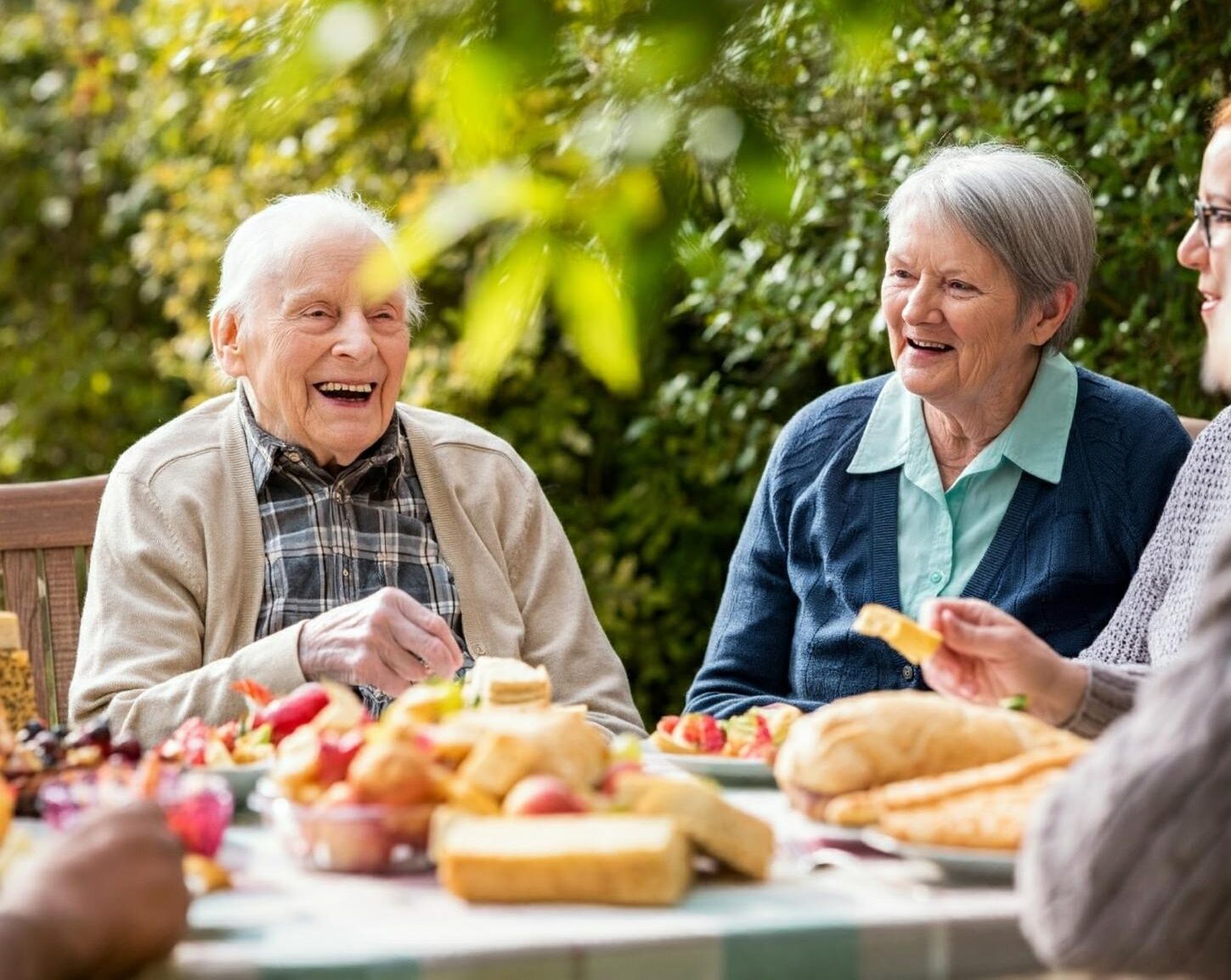How Care Homes Support Residents Overall Well-Being
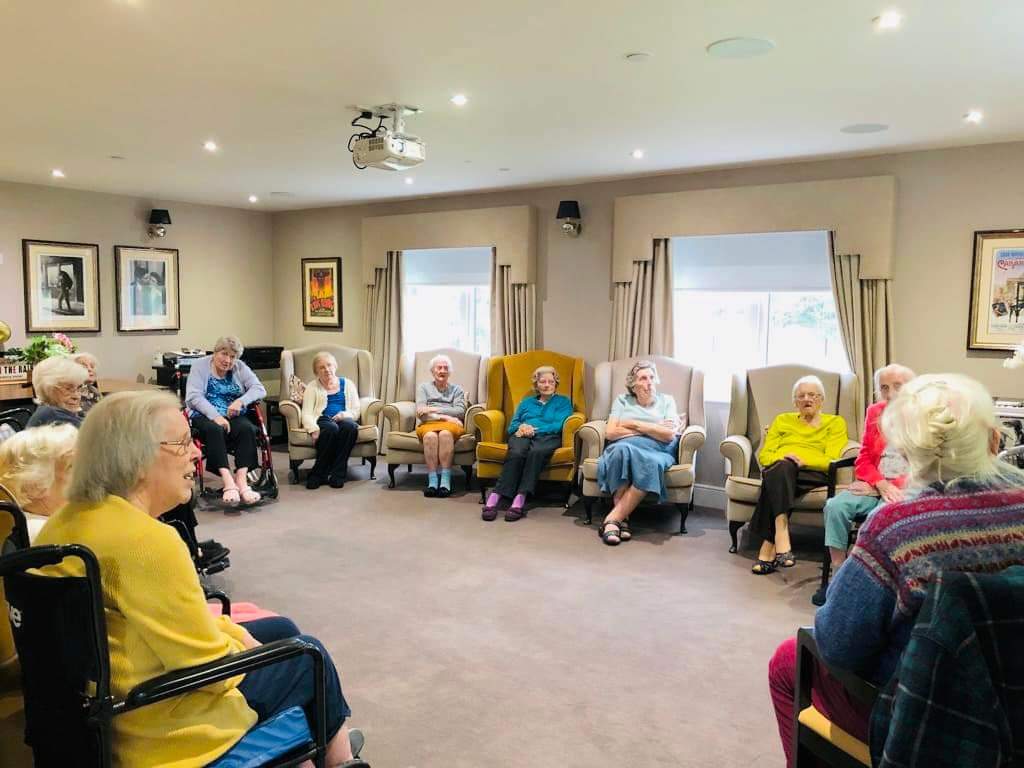
It is important to understand why well-being is such a high priority for care homes and the measures they take to ensure they can support this around-the-clock.
There are numerous care homes offering different types of short-term and long-term care all over the UK, however, there is one thing that always remains a top priority; the health and overall well-being of care home residents. Care homes provide person-centred care and support them in multiple ways including providing first-class care services, an array of tailored facilities, opportunities to socialise and form bonds and chances to try out new interests. Understanding how a care home can support you or your loved one is an important factor, so we have created a list of the top 6 ways a care home supports its residents’ overall well-being. This way, you know what to expect when searching for a care facility.
Activities Programme
As part of a care home’s on-site facilities, most care homes will offer an activities programme. A care home will often have a dedicated activities coordinator or activities team that organises an array of internal and external activities within a structured timetable for residents, ensuring no two days are the same. No matter what the needs of the residents are, each care home will ensure to cater to all interests and abilities which will enable them to pursue their hobbies and interests to contribute to their overall well-being. An activities programme gives residents the opportunity to socialise with like-minded individuals, whilst filling their days with things they enjoy. Daily activities enhance a resident’s well-being in a number of ways such as providing them with opportunities to socialise, increasing their cognitive functions, improving their mental health and reducing loneliness.
Physical Health
When people age, there becomes a higher risk that a person will have health issues. Everyday Health states that some of the most common health concerns for seniors include falls, obesity and arthritis. Care homes will incorporate activities that improve physical health such as exercise classes, short walks or entertainment that encourages singing and dancing. Incorporating regular physical exercise sessions will help to reduce the complications of some health issues that come with ageing. This includes better balance which would reduce the risk of experiencing falls, and by keeping active, residents can maintain their physical health which would reduce the effectiveness of arthritis or obesity.
Mental Development
Whether you are young, middle-aged or elderly, mental health is extremely important and something to look after to the highest degree. Care home staff are responsible for ensuring residents are looked after every hour of the day and utilising the cognitive side of their brain to keep it ticking over. There is often a stigma around mental health, especially with the older generation, which is why it is vital for care homes to support them with their mental development. This is particularly important for people living with dementia, as they will need a higher focus on their mental development to ensure they can live an independent and full life for as long as possible. Some common examples of ways to improve cognitive abilities and mental development are by socialising often, taking part in brain training games, having a balanced and nutritional diet and partaking in leisure activities. Some care homes may also have access to speech and language therapists, which could aid residents, particularly those with a speech impairment or people with dementia who might have declined speech abilities.
Medical Care
A care home that provides nursing care can support nursing residents’ overall health and well-being by providing medical care to those with long-term health conditions, critical illnesses as well as palliative care needs. A nursing team will consist of highly skilled nurses that will be able to administer medication, monitor health conditions and provide compassionate personal care to the older people living in care homes. GP appointments are another service offered that encompasses medical care. Dependent on whether or not a care home offers all-inclusive services, GP appointments should be included in a care home’s overall fees so that residents never miss a medical appointment which could lead to further treatment.
Emotional Support for Residents and Relatives
When a resident is staying in a care home, it should be expected that both residents and their loved ones receive emotional support. Since the care home will become their long-term residence, residents should feel comfortable going to staff members for emotional support when they need it. Whilst residents should remain the top priority for staff at a care home, their friends and family should also be considered. Some care homes organise regular resident and relative meetings for residents and their relatives to come together with others who are going through similar situations to express their concerns and get advice from others.
Personalised Care Plans
Before a resident moves into a care home, the team will have a meeting with them and their loved ones to establish a personalised care plan, outlining their needs, interests support needs, medical information and anything else applicable to them. You should expect this to be reviewed on a regular basis to ensure it is kept up to date in line with a person’s needs so that the resident will continue to receive first-class care that is tailored just for them. This contributes to residents' overall well-being by making sure nothing is missed or forgotten, that the team can meet residents and loved ones' expectations and can form genuine bonds with residents.
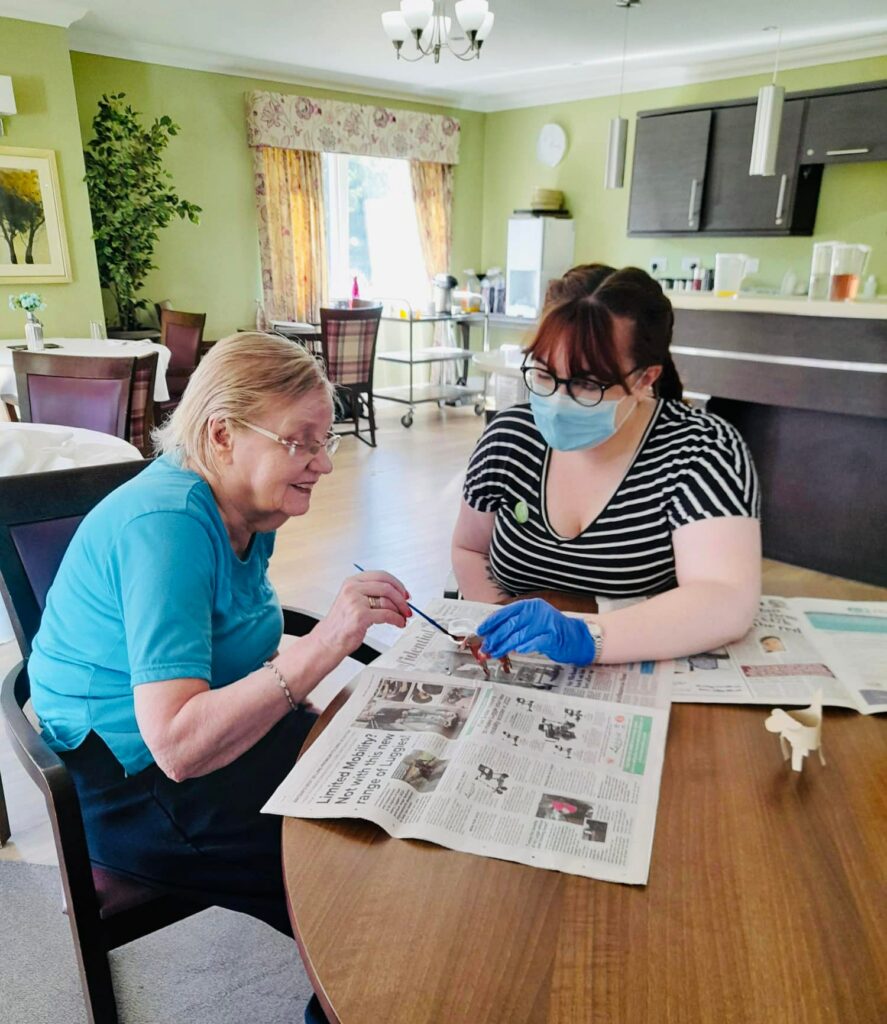
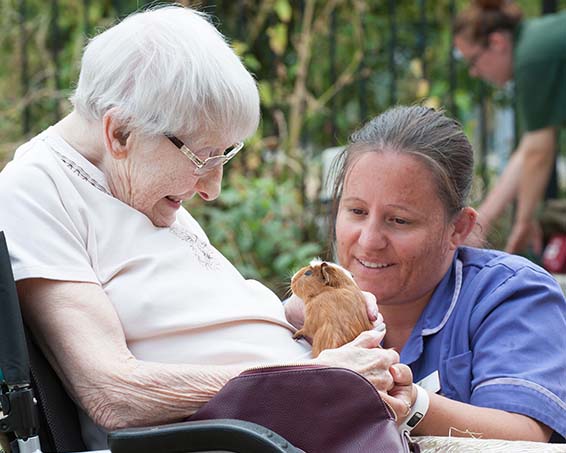
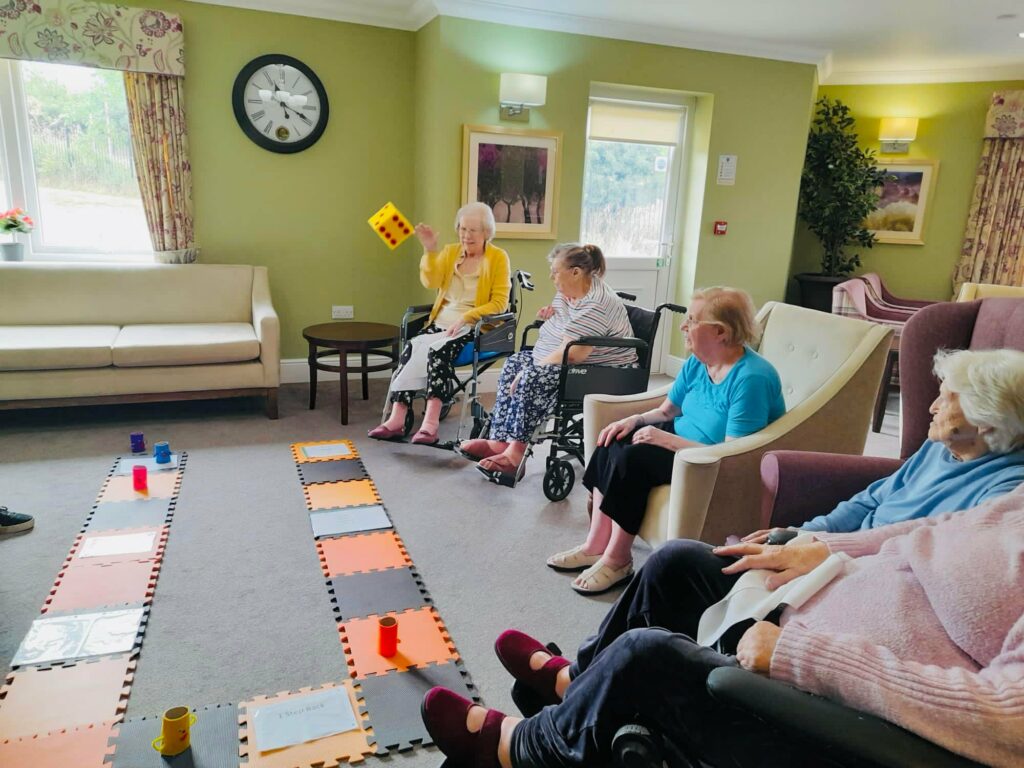
Supporting Residents at Harrier Grange
Harrier Grange is an all-inclusive care home situated in Andover with an experienced care team that provides the highest quality of life through our Nursing Care, Residential Care, Dementia Care, Respite Care and Palliative/End of Life Care services. We offer the opportunity for residents to live a comfortable and fulfilling lifestyle through the all-inclusive way of life we provide each and every day. We support our resident's overall well-being through exceptional primary care and support provided by our health and social care professionals 24 hours a day who create care plans to support residents' personal care needs and goals.
We offer a number of first-class facilities and amenities for residents to use on a regular basis. Our facilities include an entertainment & activities programme, private gardens, a salon & nail bar and a cinema room with a dedicated activities team who work tirelessly to ensure we offer options that will benefit residents in a number of ways. Harrier Grange provides a continuum of elderly care meaning our residents can transition from one type to another if their care needs change or develop during their stay with us, residents can enjoy their time in our home without worry or discomfort.
Our team and care home manager is on hand to provide expert advice and answer any queries you have about our care services, facilities or how we support the well-being of our residents. Please contact us by sending an email to info@harriergrangecare.co.uk or by calling us on 01264 252 555. Alternatively, your can contact us by filling out our online Enquiry Form. We can’t wait to hear from you.
